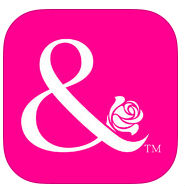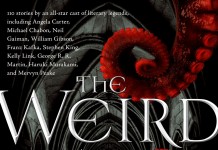
Yes, ripped, frayed, slightly torn, and even somewhat disheveled bodices need no longer languish without their very own dedicated ereading app. For Harlequin UK has launched a dedicated iOS reading app welcoming its ereading audience “to the world of Mills & Boon!” And lest anyone doubt the legitimacy or PC-ishness of the term “bodice ripper,” The Guardian, epitome of British right living and high thinking, has endorsed it in its article: “Bodice-ripping Mills & Boon novels? There’s an app for that.” What better authority could you want?
The new app will offer access to “Adobe® Content Server protected eBooks on your iOS device,” with a link to the Mills & Boon website. The digital reading app itself appears to be an adaptation of the Bluefire Reader from Bluefire, a prominent Seattle-based developer of white label reading apps – and in this case, with added pinkness. Further details on Mills & Boon’s ebook platform and terms of service are available here.
The Guardian has also argued that romantic fiction has benefited especially from ereading – though probably no more than other genres such as science fiction and horror. Mills & Boon has already enjoyed strong sales from ebooks, and appears set to reap even more. No news of an Android equivalent app yet, but Mills & Boon already appears to use the Amazon Kindle Store heavily, with some titles even offered for free. Bodacious, ripping stuff.































If “The Guardian” is your expert on proper terms, you are in deep trouble.
Not only is the term outdated and despised, but it refers to HISTORICAL romance, not CONTEMPORARY romance which is what M&B primarily prints. The historical romances that M&B does publish are Regencies which are very prim and proper with no ripped bodices in sight.
And as far as ripped bodices are concerned, it would have been all but impossible to rip the bodice of a dress in most historical times without the help of a knife. Cloth was made to last back then, and clothes were handed down through generations.
So, this term which was created by condescending jerks in the press who didn’t even read these novels isn’t even accurate about the content of the books or the historical accuracy. It is only used by condescending jerks who know nothing about the subject now.
If you want to get a term correct about what to call some kind of romance, I suggest you trust those of us who actually read and write romance and who have been in the romance community for many years. You know, someone like me.
As to romance and ebooks, romance writers and readers were the pioneers who built the market in the early days of romance, the 1990s. Publishers like Hard Shell Word Factory published romance for insatiable romance readers and filled niche markets that the conglomerate publishers didn’t consider profitable enough. The writers educated the readers about the technology, etc., and grew the market to the point that the big publishers and other genres finally decided it was worth sampling.
SF/fantasy publishers and writers were afraid of the market because of the piracy that was rampant online, and it wan’t until several years later than a lone ebook publisher, Double Dragon Publishing, entered the market.
I was an author for both publishers in those early days.